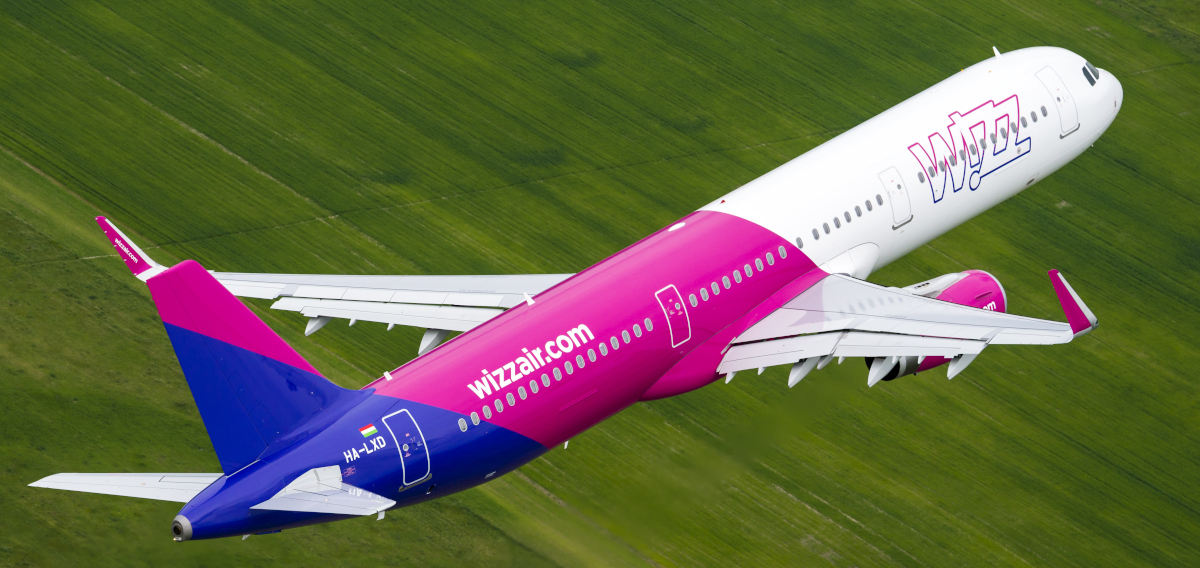Wizz Air Further Reduces its Carbon Intensity by 11% and Progresses with its Sustainability Targets

Wizz Air, Europe’s fastest-growing and most environmentally sustainable airline globally[1], has published its annual sustainability update, presenting the progress towards its sustainability targets.
In the fiscal year 2023[2], Wizz Air achieved the carbon emissions intensity of 53.8 grams per passenger/km, a decrease by 11% compared to the previous fiscal year performance[3]. This is Wizz Air’s lowest ever recorded result for one fiscal year and the lowest performance among major competitor airlines[4].
Wizz Air’s sustainability strategy is based on four pillars – environment, people, governance and economy. The airline is constantly working on its environmental footprint and carbon intensity reduction, employee development, socio-economic contribution to the regions, where it operates, and strengthening its corporate governance.
Wizz Air’s sustainability milestones in fiscal year 2023
- Achieved carbon emissions intensity of 53.8 grams per passenger/km, a decrease by 11% YoY[5] and 6% to the pre-covid level[6].
- Continued its fleet renewal and expansion programme with 35 new A321neo aircraft joined the fleet.
- Fleet average age decreased to 4.6 years, making it the youngest fleets of any European airline with over 100 aircraft.
- Signed four agreements with SAF producers for future supply: Mabanaft/P2X Europe, OMV, Neste and Cepsa.
- Made its first £5 million equity investment in a British biofuel company, Firefly, and participated in $50 million investment in CleanJoule, a US-based biofuel start-up.
- Became the first airline in Hungary to commercially test the SAF supply chain in collaboration with Neste, MOL and Budapest Airport.
- Joined the European Commission’s Alliance for Zero Emission Aviation and the Renewable and Low-Carbon Fuels Value Chain Industrial Alliance.
- Received recognition as the “Most Sustainable Low-Cost Airline” by World Finance Magazine as well as the “Global and EMEA Environmental Sustainability Group of the Year” by CAPA – Centre for Aviation.
- The employee base grew to more than 7,300 with over 2,500 new hires and more than 90 nationalities.
- Reached a 48-52% female-male gender ratio throughout the entire organisation.
[1] According to CAPA – Centre for Aviation Awards for Excellence 2022
[2] 1 April, 2022 – 31 March, 2023
[3] 60.7 grams per passenger/km in F22 (1 April, 2021 – 31 March, 2022)
[4] Based on the latest publicly disclosed emission information applicable to a 12-month period (Ryanair, EasyJet). Due to differences in reporting period, the figures and timeframe are not fully aligned.
[5] Compared F23 to F22 (60.7 grams per passenger/km)
[6] Based on comparison FY23 to FY20 (57.2 grams per passenger/km)
